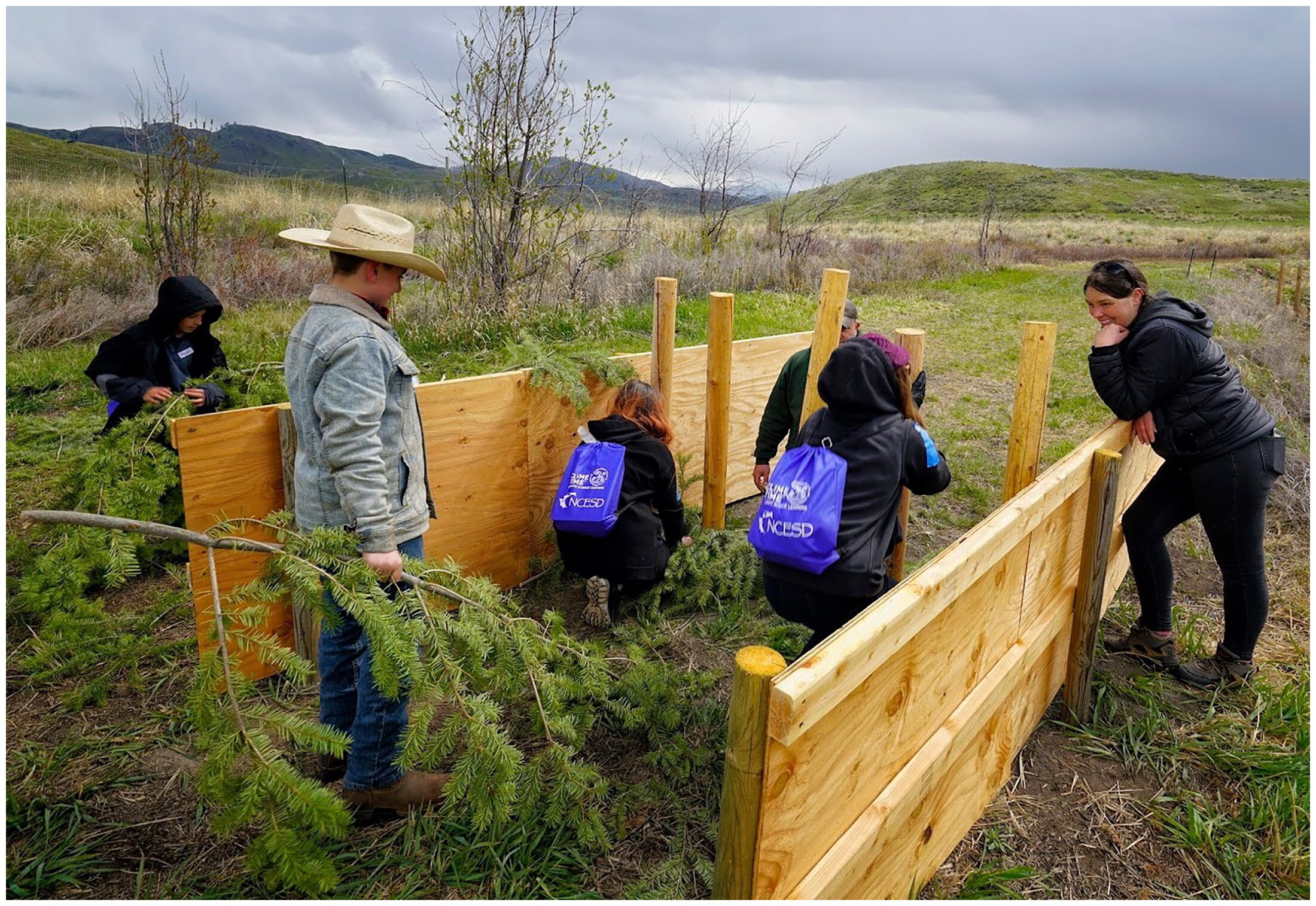Connected Science Learning on Washington’s ClimeTime Work
Posted on August 18, 2024

Washington State’s ClimeTime Network is a large-scale effort to build systemic capacity for climate science learning and broader scientific literacy. The network has been collaborating over the last six years, and recently published a suite of papers to share their learnings more broadly.
The August 2024 issue of the NSTA journal Connected Science Learning features seven articles from the ClimeTime network. Find short descriptions of these articles below. Use these to reflect on your own climate science teaching and learning and to help you build your own regional networks.
Washington’s ClimeTime: Collaboration and Capacity-Building to Foster Climate Learning Across a State Network
By Ellen Ebert, Johanna Brown, Elizabeth Schmitz, Deb Morrison, Philip Bell, Cheryl Lydon, Luke Matlack
- This article provides an overview of the ClimeTime Network formation, framing, and implementation strengths and challenges. It includes information about the project's core commitments, operations and organization, and guidance to help others engaging in emerging systemic efforts to support and build capacity for climate change education.

Learning to Design Climate Education that Honors Indigenous Climate Leadership and Sovereignty
By David Sway-la Duenas (spuyalapabš), Cheryl Wapesa-Mays, Bart Brewer, Sui-Lan Hookano, Kathryn Kurtz, Cheryl Lydon, Nancy Nelson, Elsie Mitchell, Danielle Kuchler, Cinnamon Bear, Ellen Ebert, Rachel Dehn, Kelsie Fowler, Annitra Peck, Priscilla Brotherton
- This article offers a look into how the ClimeTime network came to learn from (and with) Indigenous partners to design climate education that honors Native climate expertise. We focus first on grandmother and mother networks, listening sessions, local histories, and relational commitments. Then we offer one long case study of what is happening at the tribal Chief Leschi Schools followed by several shorter examples of how non-tribal classrooms and teachers are also being guided to take up this work.
Grounded in Community: Leveraging Partnerships for K–12 Climate Education
By Taiji Nelson, Carissa Haug, Claudia Ludwig, Isabel Carrera Zamanillo, Kelsie Fowler, Luke Matlack
- Partnerships between K–12 educators and people doing climate work in their communities provide opportunities for teachers and students to engage in consequential climate learning that is both culturally situated and locally relevant. This article features several examples from sites across Washington State where science education leaders partnered with local experts in forestry, ecology, farming, food waste, technology, and environmental justice, offering a diverse image climate learning grounded in communities.
Centering Climate Science in Learning
By Déana Scipio, Priya Pugh, Kali Natarajan, Deb Morrison, Michelle Grove, Karli Honebein, Bethany Kogut, Jen Eklund
- Washington State ClimeTime Network acknowledges the diversity of scientific histories and practices and explores these variations to deepen our teaching and learning of climate science. This paper provides visions of what we mean by climate science centered learning, principles for fostering this learning, and guidance for capacity-building to achieve systemic implementation.

Action and Engagement in Climate Science Learning Pedagogy
By Becky Bronstein, Molly Griffiths, Claudia Ludwig, Deb Morrison, Barbara Steffens, Heidi Smith
- This brief frames action-oriented learning and gives examples and resources for this approach to climate change learning.
Should Climate Science Be Local? YES!!
By Stacy Meyer, Kelsie Fowler, Claudia Ludwig, Philip Bell, Brad Street, Barbara Steffens, Molly Griffiths, Heidi Smith, Lori Henrickson, Isabel Carrera Zamanillo, Lorianne Donovan-Hermann
- In this article, we identify why local climate phenomena are critical to climate education. We introduce the concept of translocal sensemaking, which describes how youth leverage their scientific understanding of local phenomena to unpack and grapple with climate change issues either thousands of miles away or unfolding across a global scale. We also offer examples of how we have taken up local climate phenomena in our own work with teachers and students.
Make Climate Learning Happen Exactly Where You Are
By Caroline Kiehle, Jen Eklund, Kelsie Fowler, Lori Henrickson, Deb Morrison
- A system of climate learning includes students, educators, administrators, educational leaders, community members, and others from diverse lived experiences. Drawing people together in this work can seem daunting. This paper explores lessons from ClimeTime as practical guidance, exploring specific types of roles to foster and needed supports.
